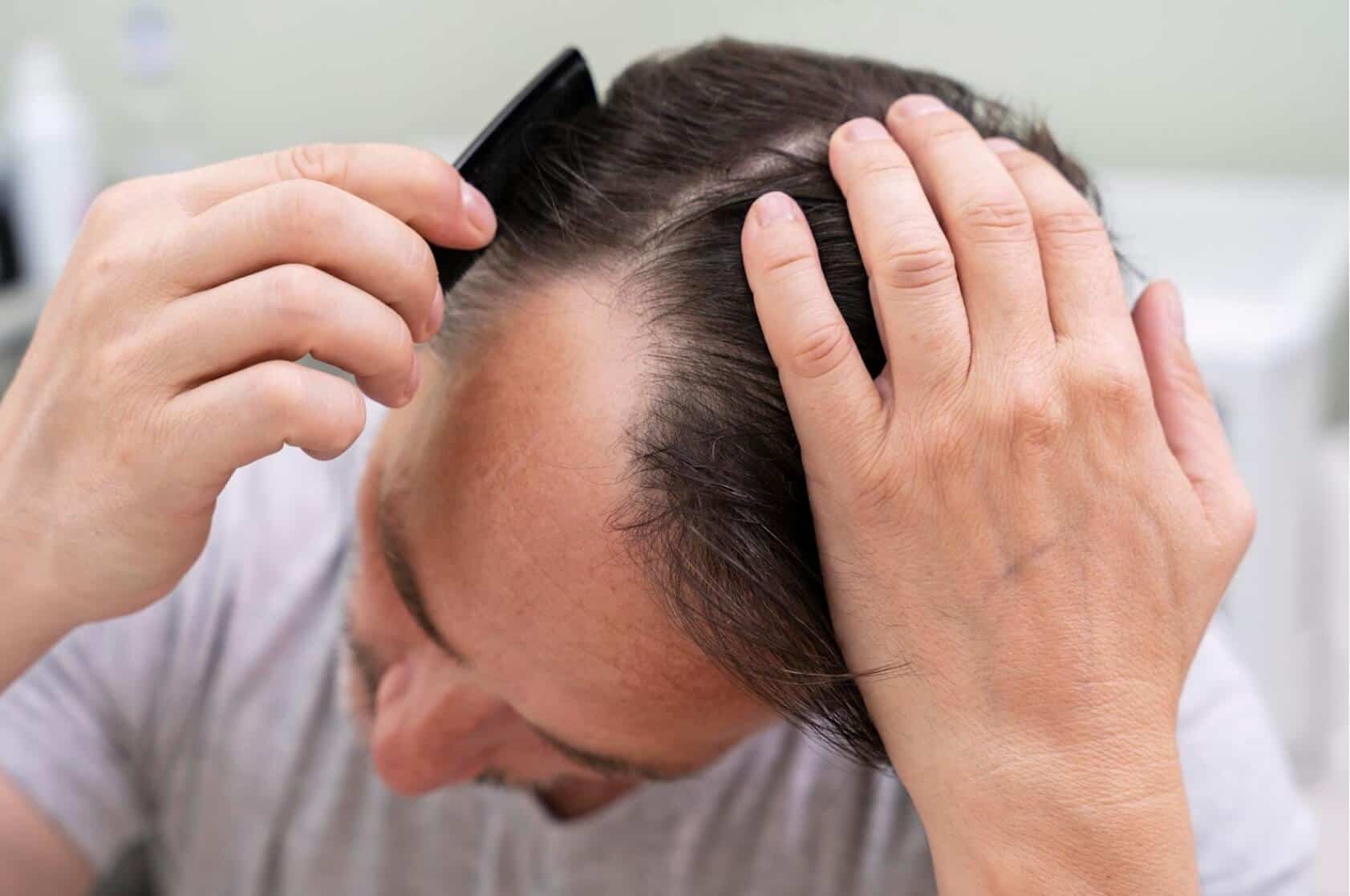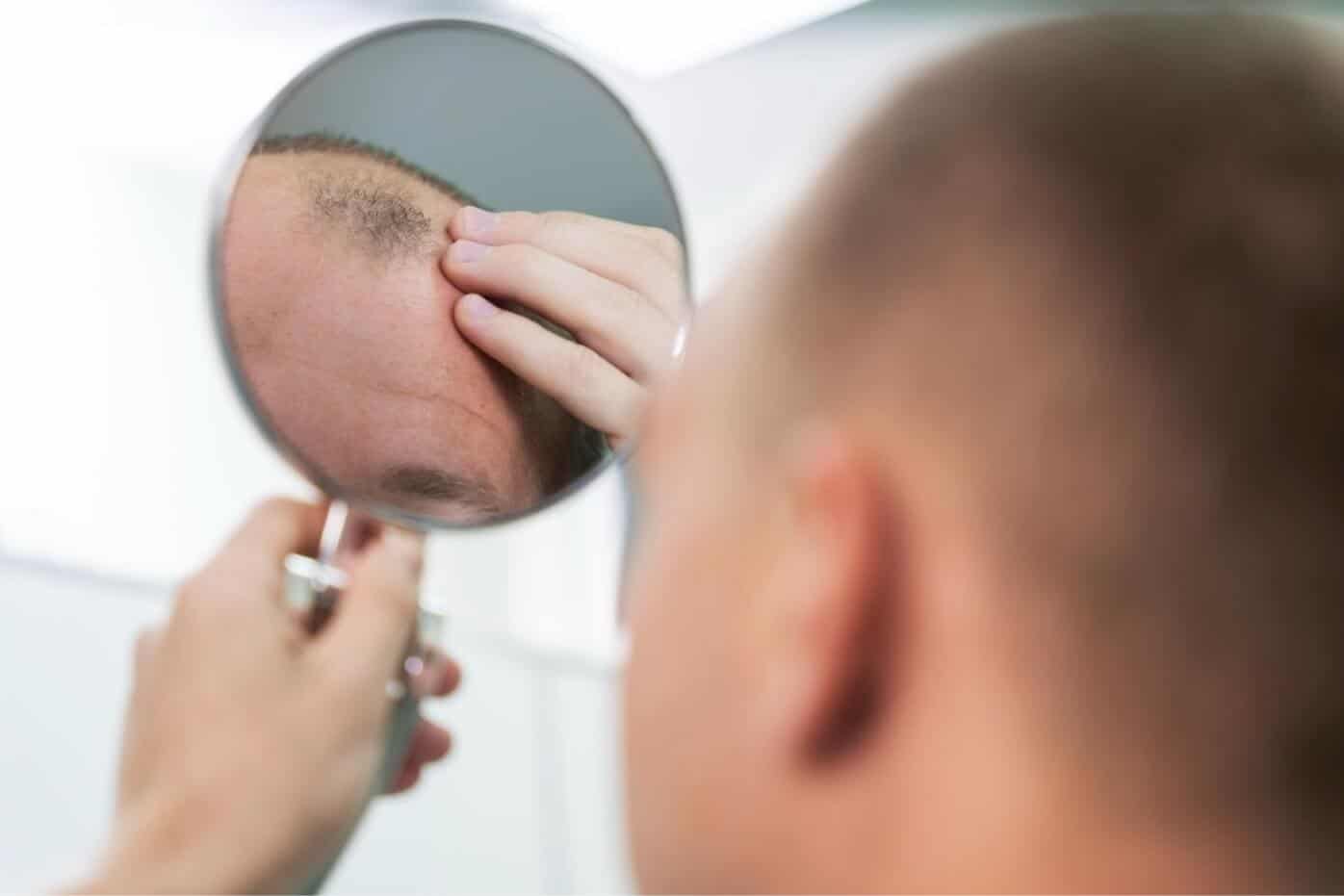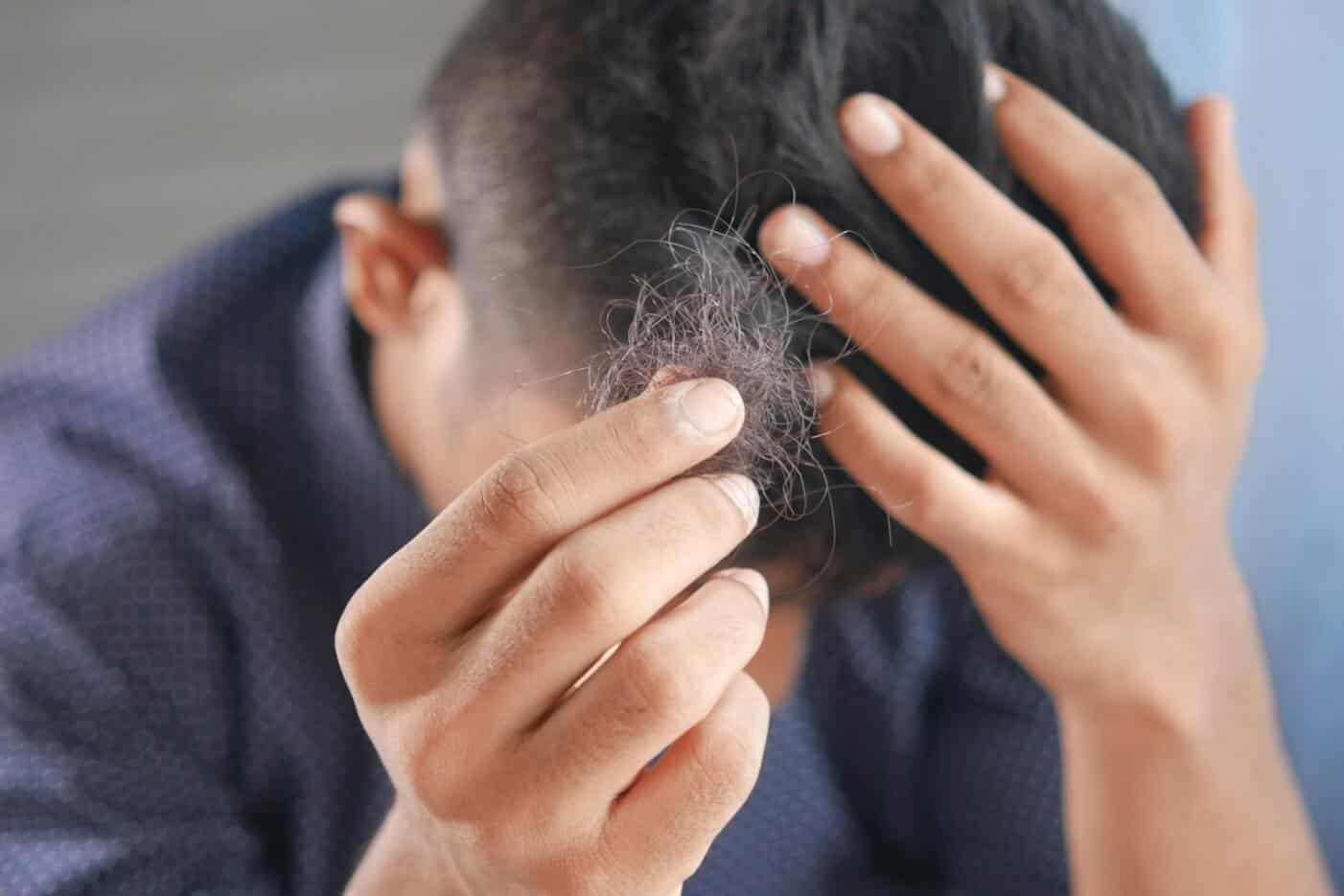Intense exercise can contribute to hair thinning through elevated stress hormones, nutritional deficiencies, and sweat-related issues, not exercise itself. Athletes should focus on balanced nutrition, proper recovery, and gentle hair care to maintain healthy hair while staying active.
- Dr Suhail Alam
- Reading Time: 10 Mins
Many runners and athletes worry about noticeable hair thinning during periods of intense training. That unexpected hair in your shower drain can be concerning when you’re otherwise focused on improving your health. Is your fitness routine causing your hair to thin, or is something else happening? Let’s explore the real relationship between active lifestyles and hair health.
Key Takeaways
- Exercise itself doesn’t cause hair loss; related factors like physical stress, nutritional deficiencies, and improper hair care are the primary culprits.
- Athletes should prioritise adequate iron, protein intake, and proper hydration to support healthy hair growth during intense training periods.
- Recovery days, stress management, and gentle hair care practices are essential for maintaining hair health alongside an active lifestyle.
Table of Contents
Does Exercise Really Cause Hair Loss?
No. Exercise itself doesn’t directly cause permanent hair loss. In fact, moderate physical activity can actually benefit your hair by improving blood circulation to the scalp, delivering vital nutrients to hair follicles.
The reality is more nuanced than simply blaming your workout routine. What many active people experience isn’t caused by exercise itself, but rather by several exercise-related factors.
A 2017 study published in the PMC found an interesting connection between exercise habits and pattern hair thinning, though researchers noted that correlation doesn’t necessarily mean causation. The relationship is complex and often involves multiple contributing factors.
Hair loss treatments can help address these issues, but understanding the underlying causes is crucial.
Causes of Hair Thinning in Active People
While staying active promotes overall health, certain aspects of an athletic lifestyle may negatively affect hair growth. Below are the key factors that can contribute to thinning in active individuals.

Physical Stress & Overtraining
Your body interprets extreme physical exertion as stress. A study by Skoluda et al. found that endurance athletes had significantly higher hair cortisol concentrations than non-athletes, with levels directly correlating to training volume.
When cortisol remains elevated for extended periods, it can push hair follicles from the growth phase (anagen) into the resting phase (telogen), ultimately leading to increased shedding known as telogen effluvium.
Recovery days aren’t just crucial for muscle repair; they’re essential for hair health too.
Nutritional Deficiencies
Athletes often focus on macronutrients for performance but may overlook micronutrients vital for hair health.
Iron deficiency is particularly common among athletes, especially female runners. Research found that patients with pattern hair loss had significantly lower serum ferritin (iron stores) than control groups, with premenopausal women showing the most pronounced difference.
Female athletes show a high prevalence of iron deficiency according to multiple research papers, with one German study from 2024 specifically noting how endurance athletes lose iron through sweat and other mechanisms.
Protein deficiency can also impact hair growth, as hair is primarily made of protein (keratin). When caloric intake doesn’t match energy expenditure, the body prioritises essential functions over hair growth.
Dehydration & Electrolyte Imbalance
Intense training leads to significant fluid loss through sweat. Chronic dehydration can affect hair follicle health by reducing blood flow to the scalp and limiting nutrient delivery to hair roots.
Electrolyte imbalances from excessive sweating without proper replenishment may further compromise cellular functions that support healthy hair growth.
Research published in Nutrients (2024) proposes biomarkers to detect low energy availability in athletes, noting that cell maintenance (including hair cells) is impaired under such conditions.
Hormonal Changes
Exercise affects hormone levels, particularly testosterone and cortisol, which can influence hair growth patterns.
Several studies have documented how endurance athletes with low energy availability show decreased testosterone and altered metabolic rates. While some hormonal changes benefit health, they can potentially trigger or worsen pattern hair loss in genetically predisposed individuals.
The 2022 study on Relative Energy Deficiency in Sport (RED-S) specifically lists hair loss among the adverse effects of chronic energy deficits in athletes.
Hairstyles & Headgear
Practical hairstyles for workouts can sometimes cause problems. Tight ponytails, braids, headbands, and hats worn repeatedly can create tension on hair follicles, leading to a type of hair loss called traction alopecia.
This is particularly common along the hairline, where tension is greatest. Sweat accumulation under hats can also create an environment where fungal infections might thrive, potentially affecting scalp health.
For personalised advice on treating exercise-related hair thinning, hair loss treatments at Aventus Clinic offer effective solutions.
Practical Hair Health Tips for Athletes
With targeted strategies addressing the specific challenges athletes face, you can maintain both performance and hair health. Here are practical approaches to protect your hair while pursuing your fitness goals:
| Category | Recommendations | Benefits |
|---|---|---|
| Nutrition | Consume adequate iron (lean meats, leafy greens, legumes) | Supports oxygen transport to hair follicles |
| Ensure sufficient protein intake (0.8-1.2g/kg body weight) | Provides building blocks for hair growth | |
| Include zinc and B vitamins (eggs, nuts, whole grains) | Supports cellular functions for hair growth | |
| Hydration | Drink water before, during, and after workouts | Maintains proper blood flow to follicles |
| Replace electrolytes after intense sessions | Supports cellular function and nutrient delivery | |
| Training | Incorporate adequate recovery days | Allows hormone levels to normalise |
| Balance high-intensity work with lower-intensity sessions | Reduces chronic physical stress | |
| Hair Care | Wash hair soon after sweating heavily | Prevents the buildup of salt and bacteria |
| Use gentle, sulfate-free shampoos | Maintains natural oils and scalp pH | |
| Opt for loose hairstyles when possible | Prevents traction damage to follicles | |
| Rotate positions of ponytails and clips | Distributes tension across different areas |
By incorporating these strategies into your routine, you’re addressing the root causes of exercise-related hair thinning. Most athletes find that these adjustments are manageable and often beneficial for overall performance and recovery as well.
Note that hair growth cycles take time, so give these approaches several months to show results.
Professional Help & Treatments
If you’re experiencing significant hair thinning despite making lifestyle adjustments, it’s time to consult with hair specialists.
At Aventus Clinic, we offer comprehensive diagnostic approaches to determine the exact cause of your hair thinning, whether it’s related to training stress, nutritional deficiencies, or other factors.
Treatment options are tailored to your specific needs and may include:
- Medical management focusing on nutritional supplementation, prescription medications that target hormonal factors, or topical treatments to stimulate follicle health.
- PRP therapy for hair loss utilises growth factors from your own blood platelets to stimulate dormant hair follicles. This natural approach is particularly popular among athletes as it complements an active lifestyle without systemic side effects.
- For more advanced cases, FUE hair transplant offers a permanent solution by relocating healthy hair follicles to thinning areas. Modern techniques ensure minimal downtime, allowing most athletes to resume training within days.
Our treatments are tailored to the unique needs of active individuals, ensuring you can maintain your training regimen while addressing hair concerns.
Conclusion
Maintaining healthy hair while pursuing an active lifestyle is absolutely achievable with the right approach. By addressing nutritional needs, training balance, and proper hair care, most athletes can preserve their hair health while still performing at their best.
If you’re concerned about exercise-related hair thinning, we’re here to help. Book your free consultation with our hair specialists at Aventus Clinic today to develop a personalised plan for your hair and active lifestyle.
FAQs
Can working out cause hair loss?
Working out itself doesn’t directly cause hair loss. However, factors associated with intense training, like elevated stress hormones, nutritional deficiencies, and excessive sweating, can contribute to hair thinning if not properly managed.
Does running lead to thinning hair?
Running alone doesn’t cause hair thinning. Studies show that endurance runners may experience temporary hair shedding due to physical stress and elevated cortisol levels, especially when combined with inadequate nutrition or recovery.
What nutrients do athletes need for healthy hair?
Athletes need more protein, iron, B vitamins, zinc, and vitamin D than sedentary individuals to maintain healthy hair. Female athletes should pay particular attention to iron levels, as deficiencies are common and can significantly impact hair growth.
Can sweat damage hair follicles?
Sweat itself doesn’t damage follicles, but allowing sweat to build up on the scalp can lead to irritation, clogged follicles, and potential fungal growth. Rinsing your hair after intense workouts helps prevent these issues.
How can active people prevent hair thinning?
Prevention strategies include balancing training intensity with adequate recovery, maintaining proper nutrition with attention to iron and protein intake, staying well-hydrated, managing stress levels, and using gentle hair care practices.









 WHATSAPP
WHATSAPP